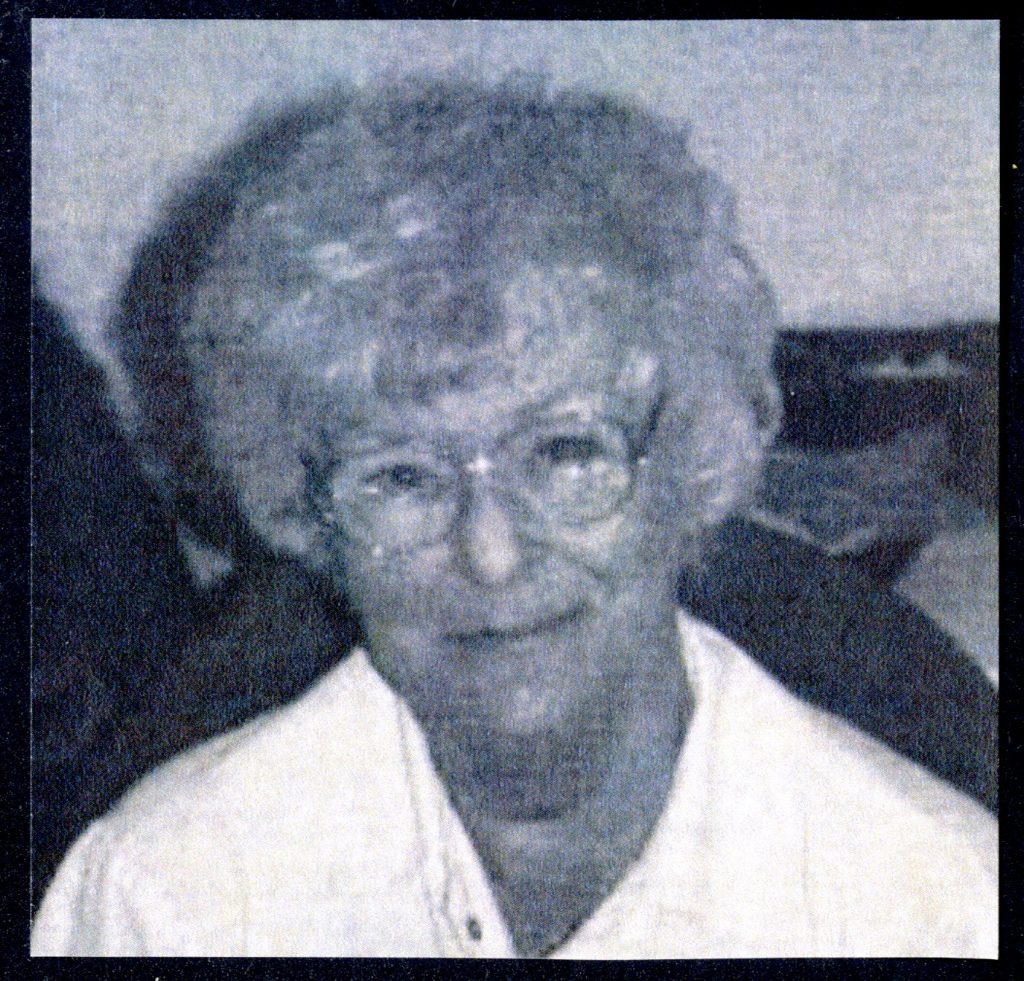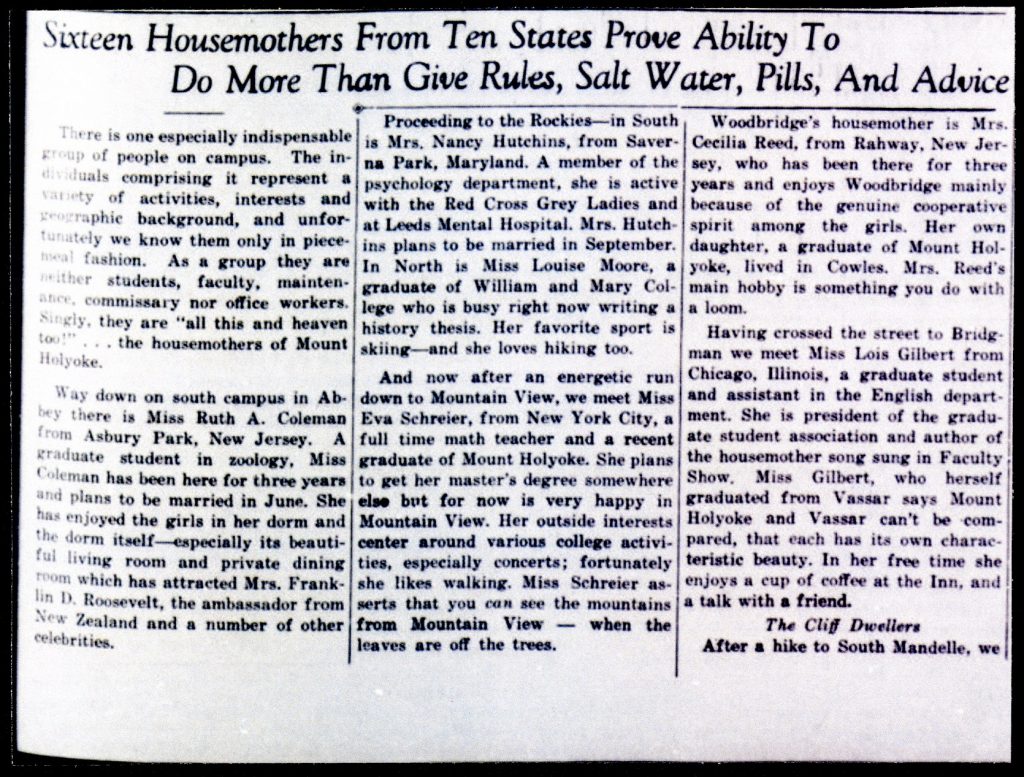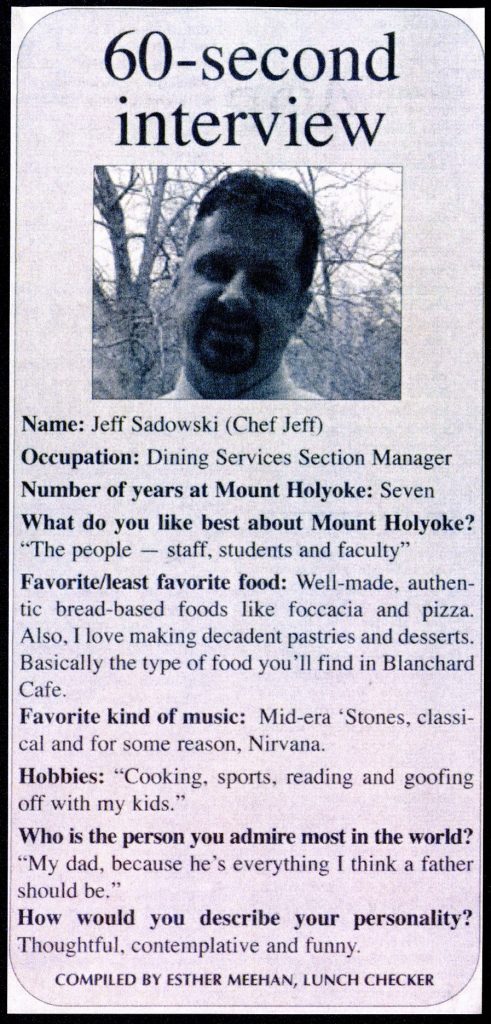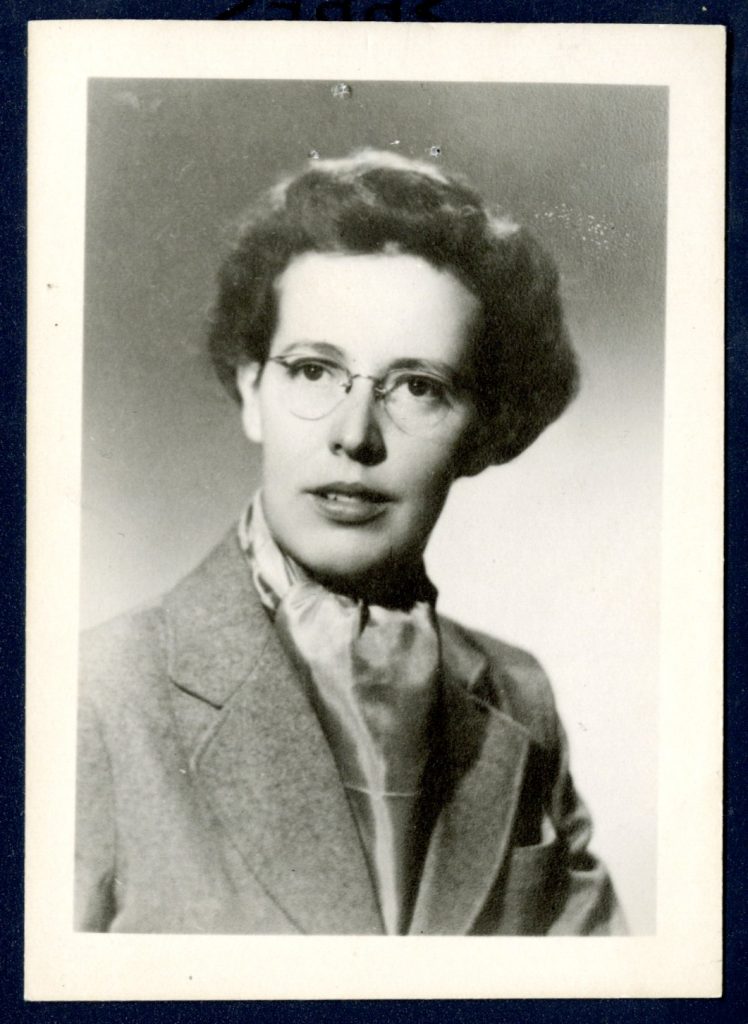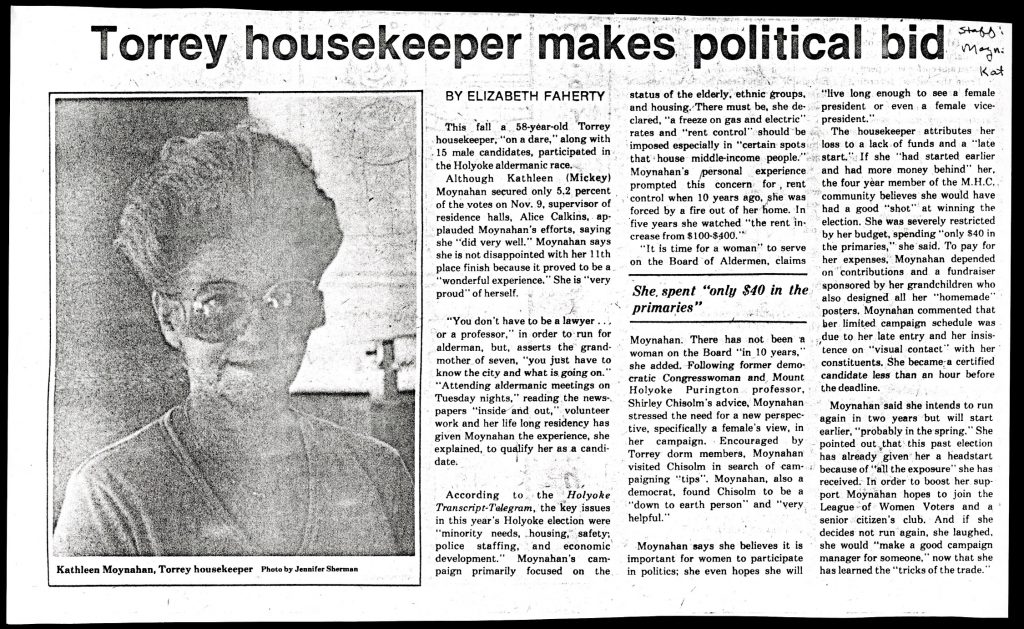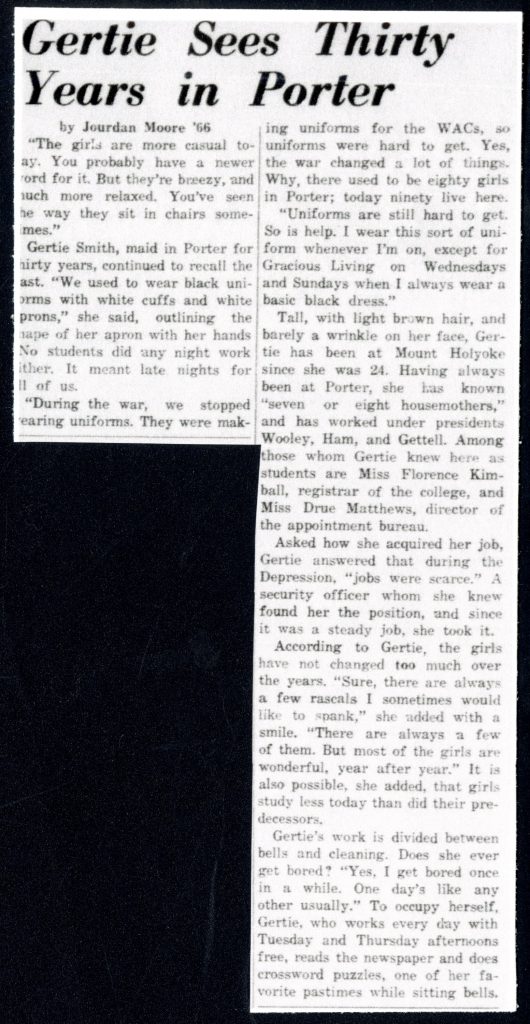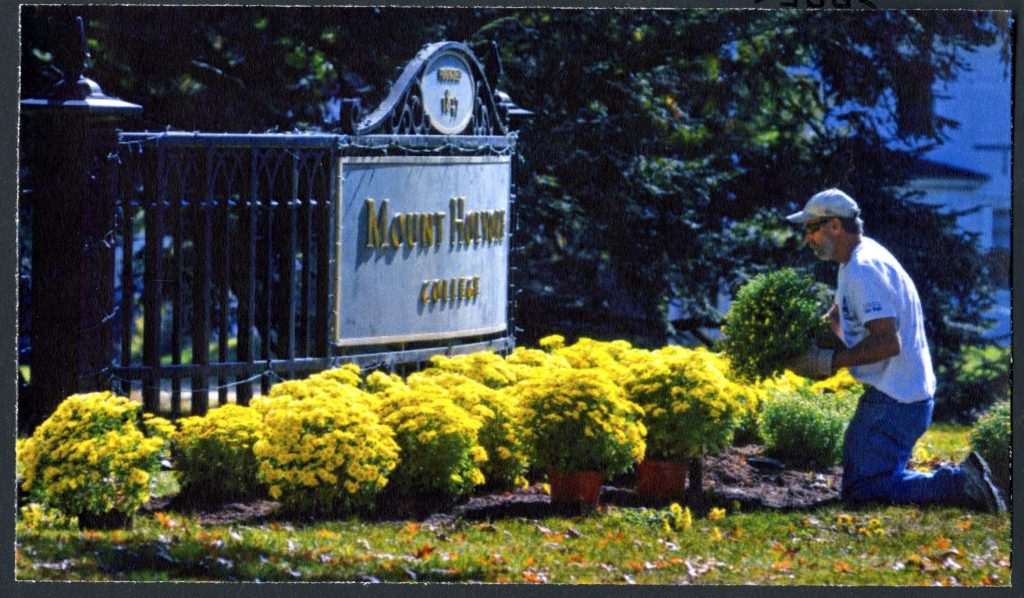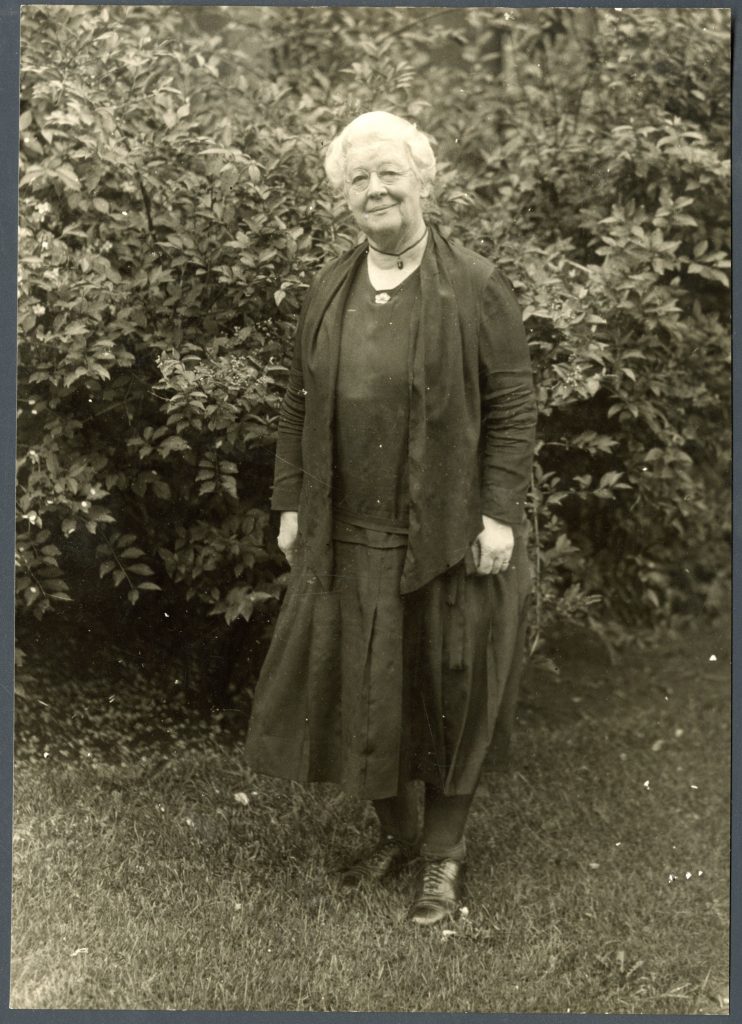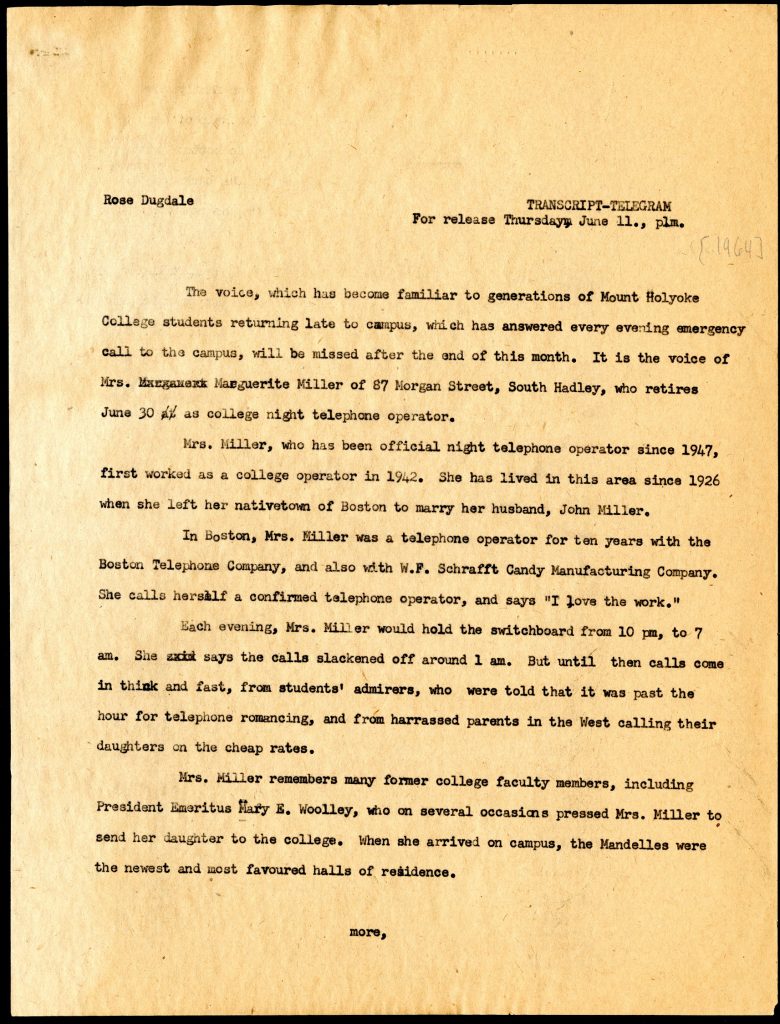Who were the groundskeepers, cooks, dishwashers, maids (later called housekeepers), and all the other staff who did the important work of making sure that students could call Mount Holyoke home? And why did they choose to work here?
In her book Intimate Communities, Sheerie A. Inness writes that one of the benefits of working as a maid at a college was the fellowship provided by living with one to two hundred other servants. Other benefits included the academic environment, the duration of the school year, and regular hours. Some maids participated in academic activities offered to them on campuses. In addition, maids were employed for only nine months, allowing them to rest or find high paying summer jobs.
Here is a glimpse at some of the many people who have worked at the College throughout the years.
Esther Meehan worked in dining services. Meehan had five children and was trained as a secretary for most of her life. She began working at Mount Holyoke around 1999. Before that she used to work for the Department of Social Services for fifteen years. She wanted to be a nurse all her life and even worked for a doctor once. In 1993, Meehan started a basketball league for youth at Holyoke’s Sacred Heart Church. It its 7th season, there were nearly 300 young athletes participating, mostly low income students. She also contributed to The Mount Holyoke News, compiling 60 second interviews of students. When she was interviewed by The Mount Holyoke News in March 2002, she said she had two dreams: the first was to visit Ireland where both of her parents were from. The second was for the young people: “I wish young people were happier. Things like drugs and alcohol have devastated so many young lives. They take drugs because they are not happy in their heart. I want the young people to be happy because they are the ones who make all the difference in this world.”
Louise Sanmiento Moore was the Head resident in North Rockefeller Hall 1945-1948. Louise received her undergraduate degree in history from William and Mary College. Louise received a master’s degree at Mount Holyoke in economic history and worked as a head resident during her studies. After her time at Mount Holyoke, she held a fellowship at the University of Cambridge and then was awarded a Fulbright to continue studying there.
Kathleen Moynahan was a housekeeper in Torrey Hall who ran for Holyoke alderman in 1983 against 15 male candidates. Moynahan asked former Congresswoman and then MHC professor Shirley Chisholm for advice on her campaign. She ran on a platform based on minority needs, housing, safety, police staffing, and economic development. She won 11th place in the election.
Elizabeth Grebb was the German House maid in 1938. She was from Siebenburgen (Transylvania). She lived in Canada for several years and then came to live with her aunt in Holyoke. The German House was looking for a maid that could speak German to the students. Elizabeth was found through a German minister in Holyoke. She was described as very economical, making butter from leftover cream, cheese from leftover milk, and making German peasant costumes for the girls in the house. Since she used to be a hairdresser, she would set the students’ hair for them at night. She participated in as much of the college life around her as she could and she described American girls as somewhat spoiled.
Gertie Smith was a maid in Porter Hall beginning in 1933 when she was 24. She came to Mount Holyoke from a store position in Holyoke. It was during the Depression when work was scarce and a security officer she knew found her the position. Her work was divided between bells (running the front desk in each residence hall) and cleaning, though she seemed to play a motherly role as well. She hid some of the First Years on hazing day. When she was on bells and blind dates would come in she would signal to the girls if they needed to dress up or down. She was interviewed for The Mount Holyoke News twice.
Ron McMahon was a Groundskeeper in facilities management who did competitive endurance canoeing. In 1996 he won a 70 mile race, completing it in eight hours with a partner on the Susquehanna River. An article in the College Street Journal said “He’s always looking for new converts to canoeing, and offers clinics in canoe racing about four times a year.”
Marguerite Miller was a night telephone operator from 1942-1964. Miller moved to South Hadley from East Boston when she married her husband. Each evening she would operate the switchboard from 10pm to 7am. She says the calls slackened around 1am but until then calls came in often, from students’ admirers, who were told that it was past the hour for telephone romancing, and from parents in the West calling their daughters. Her family also helped hang exhibitions in Dwight Art Gallery.
